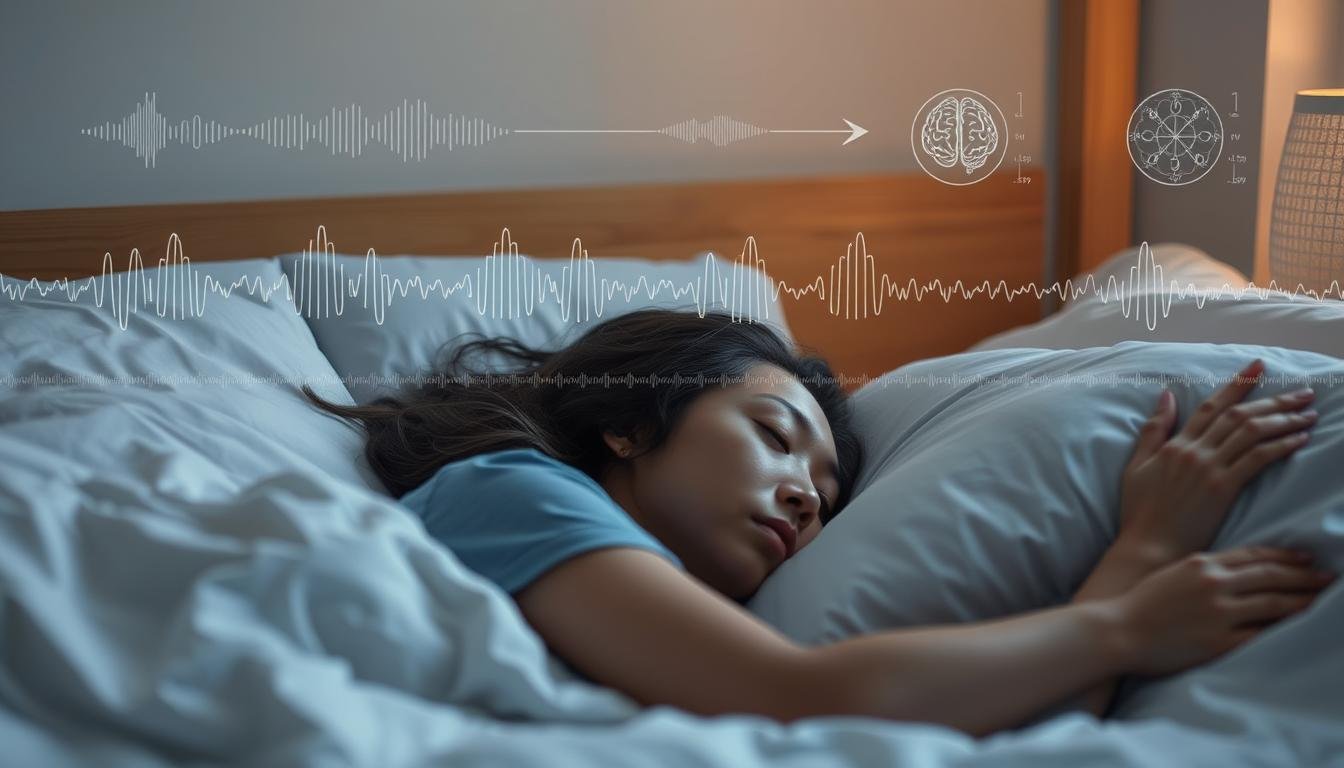Want All the Best Sleep Hacks in One Place?
Discover our complete sleep optimization guide with advanced science-backed techniques not covered in this article. Download our comprehensive Sleep Hacking eBook and transform your sleep quality starting tonight!
Hack #1: Optimize Your Light Exposure Throughout the Day
Your body’s internal clock—the circadian rhythm—relies heavily on light exposure to regulate sleep-wake cycles. Research has consistently shown that proper light management throughout the day can dramatically improve sleep quality.

Morning Sunlight: Your Sleep’s Best Friend
A 2022 study published in Sleep Health found that just 30-45 minutes of morning sunlight exposure can help you fall asleep up to 20 minutes faster at night. This happens because bright morning light suppresses melatonin production and resets your circadian rhythm, making it easier to feel sleepy when evening arrives.
“Morning sunlight exposure is one of the most powerful tools we have for regulating sleep. It synchronizes your internal clock and improves both sleep timing and quality.”
Evening Blue Light Reduction
On the flip side, exposure to blue light from screens close to bedtime can delay melatonin production by up to 3 hours. A 2019 study in the Journal of Clinical Endocrinology & Metabolism found that participants who reduced blue light exposure in the evening fell asleep an average of 16 minutes faster.
How to Implement This Hack:
- Get 30-45 minutes of bright natural light within an hour of waking up
- Use blue light blocking glasses 2-3 hours before bedtime
- Install apps like f.lux or Night Shift on your devices
- Switch to warm, dim lighting in your home after sunset
- Avoid screen time at least 60 minutes before bed
Hack #2: Leverage Temperature for Deeper Sleep
Your body temperature naturally drops as you prepare for sleep, and research shows you can hack this process to fall asleep faster and improve sleep quality.
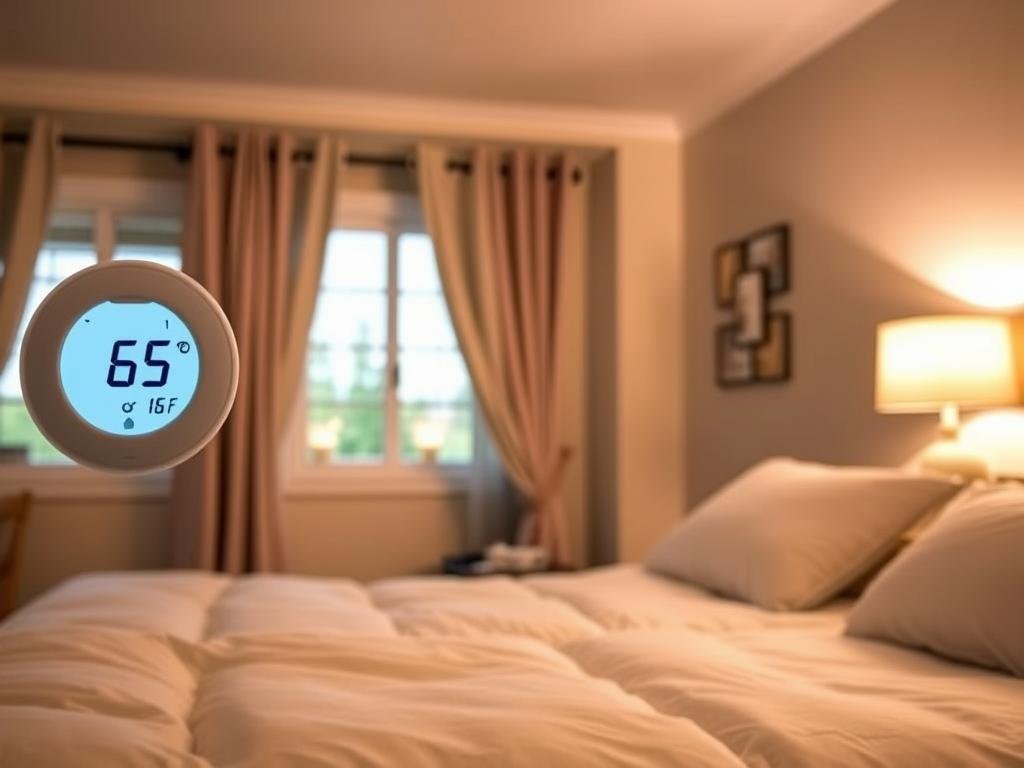
The Science Behind Temperature and Sleep
A 2019 review in Sleep Medicine Reviews found that the ideal bedroom temperature for most adults is between 60-67°F (15.6-19.4°C). At these temperatures, your body can more easily achieve the 1-2°F drop in core temperature needed to initiate and maintain deep sleep.
Warm Feet, Better Sleep
Interestingly, while a cool room is ideal, warm extremities can help you fall asleep faster. A study from the University of Groningen found that wearing socks to bed dilated blood vessels in the feet, helping to lower core body temperature more quickly and reducing sleep onset time by an average of 7.5 minutes.
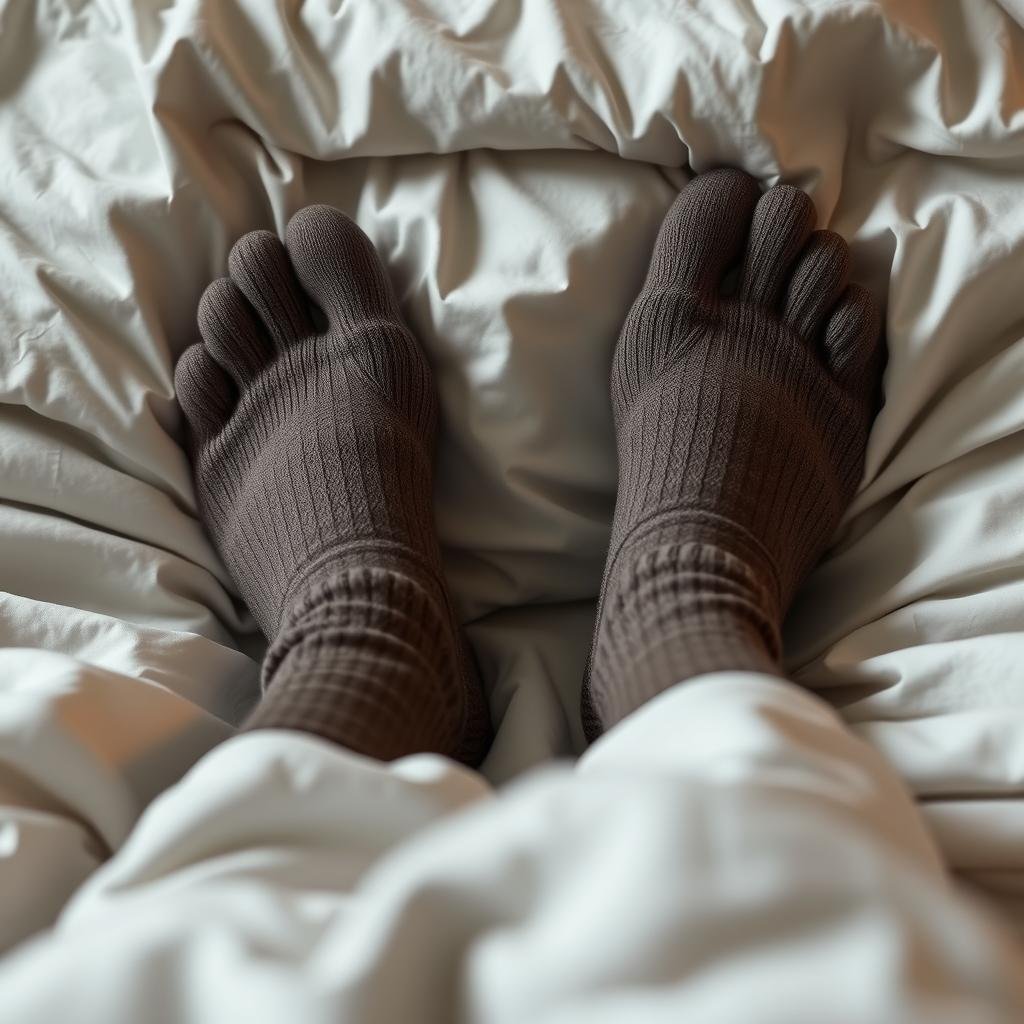
How to Implement This Hack:
- Set your bedroom thermostat between 60-67°F (15.6-19.4°C)
- Consider wearing lightweight socks to bed
- Use breathable, temperature-regulating bedding materials
- Take a warm shower or bath 1-2 hours before bedtime
- Use a fan or open windows to improve air circulation
Hack #3: Master Your Pre-Sleep Nutrition
What and when you eat can significantly impact your sleep quality. Research has identified specific nutritional strategies that can help you fall asleep faster and stay asleep longer.
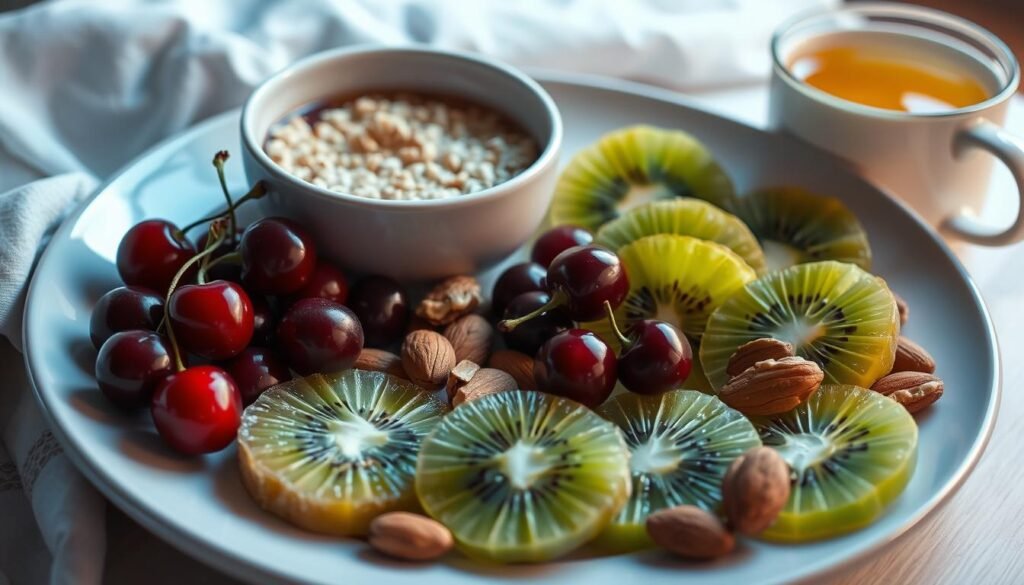
Timing Matters
Research in the field of chrononutrition has found that eating high-glycemic index (GI) foods approximately 4 hours before bedtime can reduce sleep onset by up to 50%. However, eating within an hour of bedtime has been shown to disrupt sleep quality and increase nighttime awakenings.
Sleep-Promoting Foods
Certain foods contain compounds that naturally support sleep. A 2018 review in Advances in Nutrition identified several evidence-backed options:
Tryptophan-Rich Foods
- Turkey and chicken
- Milk and cheese
- Nuts and seeds
- Oats and whole grains
Melatonin-Boosting Foods
- Tart cherries (especially as juice)
- Kiwi fruit
- Fatty fish
- Nuts (especially pistachios)
“Two kiwi fruits consumed one hour before bedtime for four weeks increased total sleep time by 13% and sleep efficiency by 5% in adults with sleep difficulties.”
How to Implement This Hack:
- Eat your last substantial meal 3-4 hours before bedtime
- If hungry before bed, choose a small snack combining complex carbs and protein
- Consider a small serving of tart cherry juice or kiwi fruit in the evening
- Avoid caffeine after 2 PM (or 8 hours before bedtime)
- Limit alcohol, which disrupts REM sleep and causes fragmented sleep
Hack #4: Use Cognitive Techniques to Quiet Your Mind
For many people, a racing mind is the biggest obstacle to falling asleep. Science has validated several cognitive approaches that can help quiet mental chatter and prepare your brain for sleep.
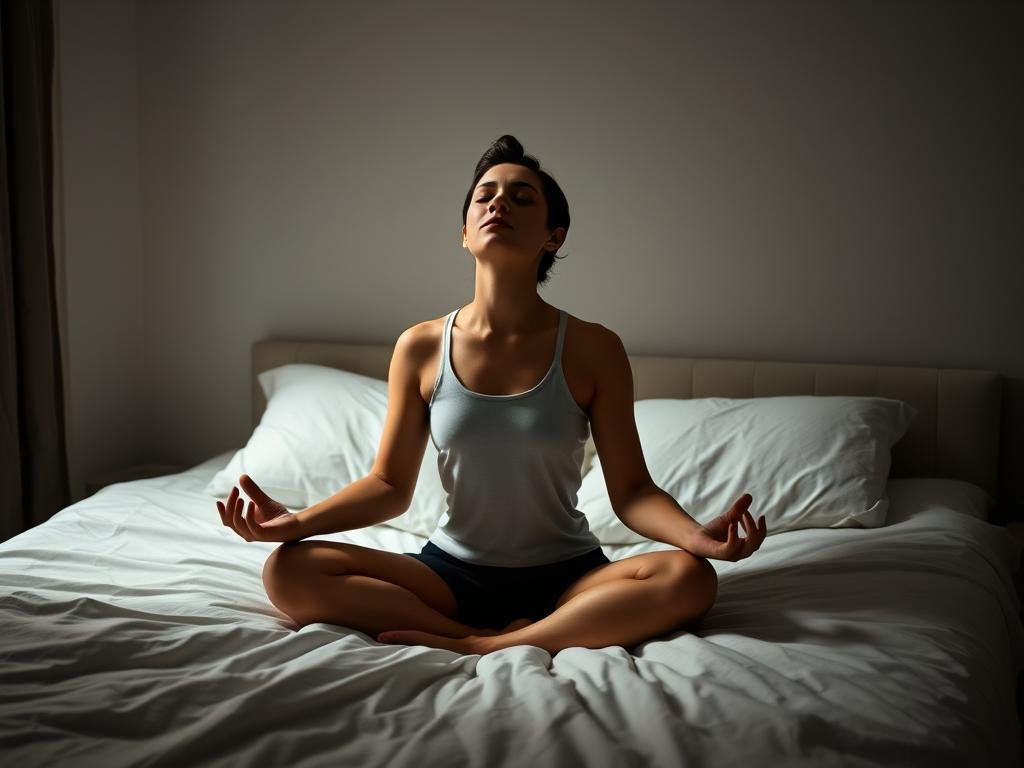
Cognitive Refocusing
A study from Syracuse University found that cognitive refocusing treatment for insomnia (CRT-I) reduced sleep onset time by 55% compared to standard sleep hygiene practices. This technique involves deliberately shifting your thoughts to emotionally neutral, mildly engaging topics when trying to fall asleep.
Scheduled Worry Time
Research published in the Journal of Behavior Therapy and Experimental Psychiatry showed that setting aside a specific “worry time” earlier in the day reduced bedtime anxiety and improved sleep quality. By writing down concerns hours before bedtime, participants experienced a 73% reduction in sleep-disrupting thoughts.
Paradoxical Intention
Sometimes trying too hard to fall asleep creates anxiety that keeps you awake. A technique called paradoxical intention—deliberately trying to stay awake while in bed—reduced sleep onset latency by 40% in a study published in Behavioral Sleep Medicine.
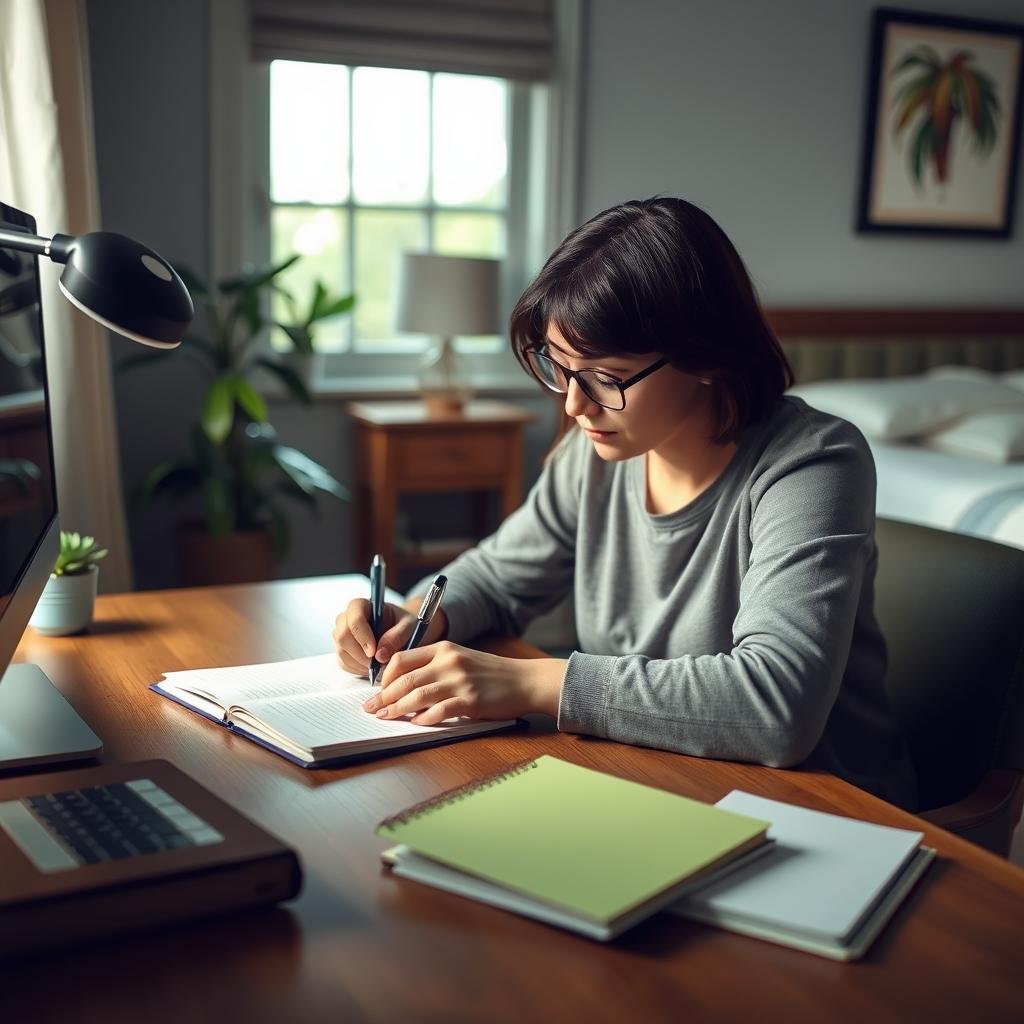
How to Implement This Hack:
- Schedule a 15-minute “worry time” at least 3 hours before bed
- Write down concerns and potential solutions during this time
- Prepare 3 neutral, mildly engaging topics to think about when in bed
- If you can’t sleep after 20 minutes, get up and do a relaxing activity
- Try telling yourself “I’ll just rest my eyes” instead of forcing sleep
Hack #5: Optimize Your Sleep Environment
Your bedroom environment plays a crucial role in sleep quality. Research has identified specific environmental factors that can be optimized for better sleep.
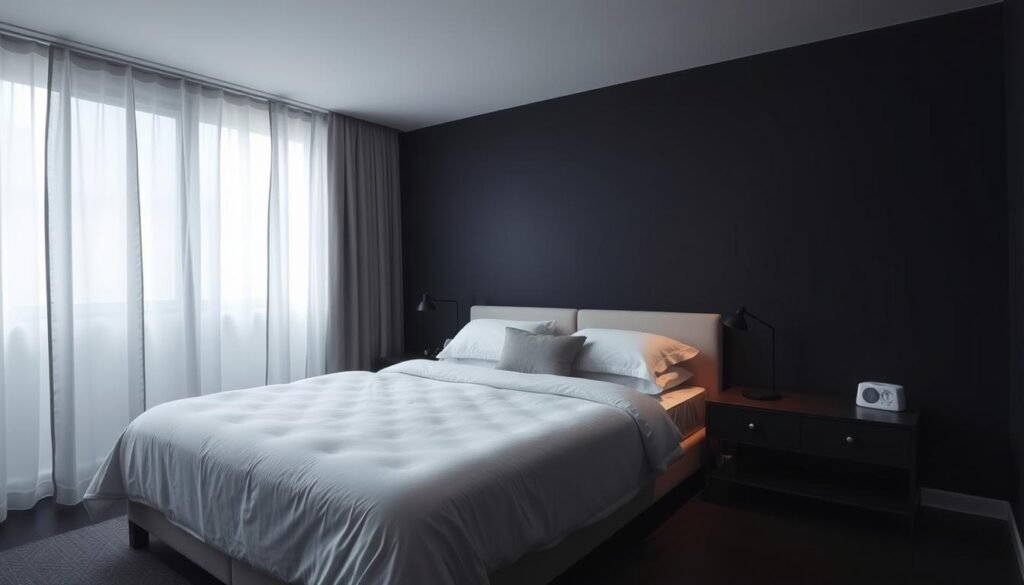
Noise Control
A 2016 study in Sleep Science found that even low-level noise can increase the time it takes to fall asleep and reduce sleep quality. White noise machines have been shown to improve sleep onset by masking disruptive sounds and creating a consistent auditory environment.
Mattress and Bedding Quality
Research published in the Journal of Chiropractic Medicine found that new, medium-firm mattresses reduced back pain by 48% and improved sleep quality by 55% in participants with chronic pain. The right mattress and bedding materials can significantly impact sleep efficiency.
“Different bedding materials perform better under different conditions. Wool helps adults fall asleep in cool temperatures, while linen improves sleep quality for young adults in warm environments.”
Air Quality
A 2021 study in the International Journal of Environmental Research found that improved bedroom ventilation increased sleep efficiency by 7% and reduced nighttime awakenings. Higher carbon dioxide levels were associated with poorer sleep quality and morning headaches.
How to Implement This Hack:
- Use blackout curtains or a sleep mask to eliminate light
- Consider a white noise machine or app to mask disruptive sounds
- Invest in a medium-firm mattress appropriate for your sleep position
- Choose breathable, natural bedding materials
- Ensure good ventilation and consider an air purifier
- Keep your bedroom clutter-free and dedicated to sleep
Frequently Asked Questions About Sleep Hacks
How long should it take to fall asleep?
A healthy sleep latency period typically ranges from 15 to 20 minutes. Taking less than 10 minutes to fall asleep may indicate sleep deprivation, while taking significantly longer could be a sign of insomnia or other sleep issues. If you consistently take more than 30 minutes to fall asleep, consider consulting a healthcare provider.
Are sleep supplements like melatonin effective?
Melatonin supplements have shown effectiveness for specific sleep issues, particularly circadian rhythm disorders and jet lag. Research indicates they can help reduce the time it takes to fall asleep by 7-12 minutes on average. However, they’re not recommended for long-term use without medical supervision. Other supplements with some scientific support include magnesium, L-theanine, and valerian root, though results vary by individual.
How can I tell if my sleep quality is poor?
Signs of poor sleep quality include taking more than 30 minutes to fall asleep, waking frequently during the night, feeling unrefreshed despite adequate time in bed, daytime sleepiness, difficulty concentrating, and mood changes. Sleep efficiency (time asleep divided by time in bed) below 85% is also considered suboptimal. If you experience these symptoms regularly, implementing the science-backed sleep hacks in this article may help.
Can exercise improve sleep quality?
Yes, regular physical activity has been consistently shown to improve sleep quality. A 2018 meta-analysis found that exercise can reduce the time it takes to fall asleep by approximately 55% and increase total sleep time by 18%. For optimal sleep benefits, aim for moderate-intensity exercise at least 3-4 hours before bedtime. Vigorous exercise too close to bedtime may have a stimulating effect that delays sleep onset.
Transform Your Sleep Starting Tonight
Sleep is not a luxury—it’s a biological necessity that affects every aspect of your health and performance. The five science-backed sleep hacks we’ve explored—optimizing light exposure, leveraging temperature, mastering pre-sleep nutrition, using cognitive techniques, and creating an ideal sleep environment—can help you fall asleep faster and enjoy deeper, more restorative rest.
Remember that consistency is key. Implementing these strategies regularly will help retrain your brain and body for better sleep. Start with one or two hacks that seem most relevant to your situation, then gradually incorporate others as they become part of your routine.
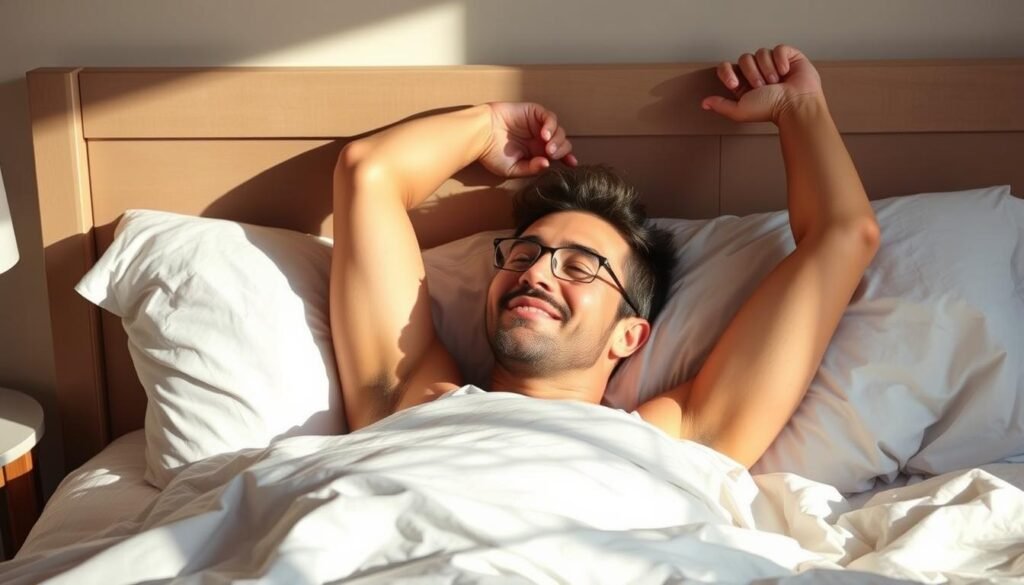
What sleep hack will you try tonight? Your journey to better sleep—and better health—begins with that first step.
Ready for Advanced Sleep Optimization?
Our comprehensive Sleep Hacking eBook contains 15+ additional science-backed techniques not covered in this article, plus a 30-day sleep transformation plan with tracking tools. Download it now and experience the life-changing benefits of truly restorative sleep!

